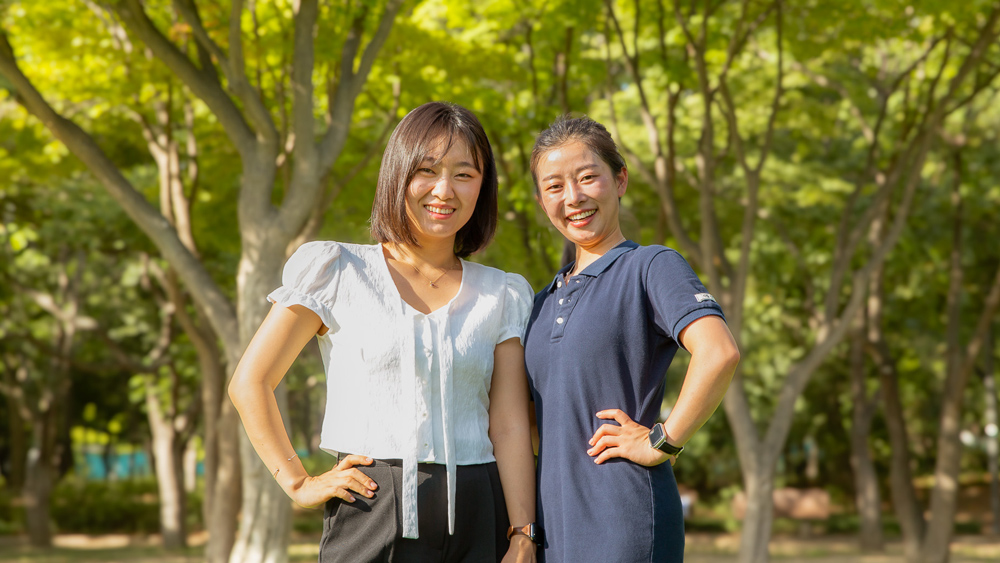North Korean Refugee Rescues: An Update from Our Field Manager
Over the past few years, the impact of COVID-19 has had a devastating effect on the day-to-day lives of North Korean people. Pandemic-related border lockdowns, increased surveillance, and unprecedented restrictions made it impossible for North Koreans to escape and reach freedom.
After a painstakingly long pause on rescues, at the end of 2022 we were finally able to start moving people safely again. Our field team has worked tirelessly to establish new, viable routes and adapt to circumstances on the ground. Navigating unprecedented restrictions and developing new routes has led to significantly higher and extremely volatile rescue costs, but our commitment is stronger than ever to help North Korean refugees reach freedom.
We recently sat down with our field manager, Jennifer* to hear directly about the current needs, challenges, and potential of this new era of rescues.

Could you give us a general overview of the situation in China?
So much has changed since the start of the pandemic. Activists have been kicked out of the country; brokers no longer want to do this work because of the increased surveillance and restrictions. The number of underground rescue networks has shrunk significantly. Navigating these challenges puts us at higher risk, which means that we have to use more resources, including people on the ground, to guarantee that our groups move safely. Because of the increased costs, we soon might have to ask people to wait to be rescued and it’s agonizing, especially because timing is critical in the underground railroad. There are very few moments when everything aligns and it is safe to travel, but because we don’t have funds, North Korean refugees lose those rare, precious opportunities. The North Koreans I’ve been in communication with are living in constant fear because of the increased use of security technology by the state, such as facial recognition with AI. On top of that, domestic violence continues to be a serious issue for many North Korean women who were trafficked or forcibly married in China.
Is there a risk of being sent back to North Korea right now?
Refugees who are caught in China are forcibly sent back to North Korea where they are severely punished. However, because of the pandemic, North Korea sealed its borders in January 2020 and has yet to reopen them. This means that repatriation hasn’t been possible yet, but we are hearing rumors that North Korea will start receiving people again soon.
Many people who have tried to escape were arrested and we’ve heard that currently, there are a large number of North Korean refugees in Chinese prisons.
What kind of situations are people escaping from in China?
It’s mostly North Korean women who were trafficked or forcibly married to Chinese men. Some have been living in China for several years and the pandemic left them stranded with no way to escape. We had heard that some of these women were facing even worse treatment from their Chinese husbands than before. The people who arrived in China in 2019 or early 2020 only had a very short period of time to learn the language, culture, and to adjust before having to quarantine. It has been much more difficult for these people to try to escape from China.
More recently, some of the refugees we’re in communication with have serious health issues. But they can’t go to the hospital because they’re not Chinese citizens and would risk being arrested and sent back to North Korea. They are hoping to make it to South Korea to get the healthcare they need.

And what are some of the challenges that North Koreans in China face day-to-day?
They can’t go outside. There was already a lack of freedom to travel and move around freely before the pandemic, but it has only gotten worse since then. When I speak with them, it feels like they’re losing hope. The reality of how difficult and expensive the journey has become is discouraging, especially because they hear about people who attempted the journey and were caught and arrested. So for people who were connected with us recently, many were shocked to hear about our work. They said it was almost surreal because they didn’t think it was possible to get to freedom at this time.
What motivated these people to leave North Korea in the first place?
It’s different depending on the person. There are usually personal circumstances that lead them to look for better opportunities in China or South Korea. Many people are tricked into human trafficking. Some women choose to live with a Chinese husband of their own will. They believe it’s better to live in China in this way rather than live in North Korea.
What have been the biggest challenges for you?
While I'm very grateful that we've been able to resume rescues, it's a shame that we can only move a limited number of people due to increased costs and heightened security. I stay in close contact with refugees in China who are hoping to reach freedom, and some are in urgent situations. A woman who was 4 months pregnant had to make the journey before her belly got too big. Some refugees have health conditions that need immediate treatment, but they’re unable to go to the hospital. My hope is that we can rescue as many people as possible so they can experience freedom and live the full lives that they deserve.

Since restarting rescues last December, the significant increase in costs have depleted our rescue and resettlement funds, leaving many North Korean refugees waiting, once again, for an opportunity to escape. Your support is needed now more than ever.
Throughout the month of June, all one time gifts made here will go 100% towards our rescue and resettlement efforts. In honor of World Refugee Day 2023 and the countless people waiting for their rare and precious opportunity to reach freedom, give a gift today.
Give Today
*Jennifer is a pseudonym used to protect our field manager’s identity and avoid compromising this work.
North Korean Fellows in the United States: Meet the Class of 2025

Please join us in welcoming Hannah and Rose, LiNK’s 2025 Advocacy Fellows!
The Advocacy Fellows program partners with young North Korean defectors to build their skills as effective leaders, storytellers, and agents of change for this issue. Hannah and Rose spent the last month training and preparing with our team in South Korea, and will now be traveling across the US to share their stories!
Join us at a Fellows speaking event near you!
Dallas, TX
September 9th, 6pm
Southern Methodist University | Dallas Hall Room 306 (McCord Auditorium)
3225 University Blvd, Dallas TX 75205
RSVP Here
Guest parking information here
Waco, TX
September 11th, 6pm
Baylor University, Foster Campus | Room 240
1621 S 3rd St, Waco, TX 76706
RSVP Here
Parking: 1521 S Fourth St. Waco,TX 76706 (Google maps or Apple Maps)
Madison, WI
September 16th, 12pm
UW-Madison | Lubar Commons (Room 7200)
975 Bascom Mall, Madison, WI 53706
RSVP here
Evanston, IL
September 20th, 5pm
Northwestern University | Harris Hall 107
1881 Sheridan Rd, Evanston, IL 60201
RSVP Here
Palo Alto, CA
September 28th, 1:20pm
True North Church
655 Arastradero Road, Palo Alto, CA 94306
RSVP Here
Berkeley, CA
September 29th, 6pm
UC Berkeley | Stephens Lounge at the MLK Student Union
2495 Bancroft Way, Berkeley, CA 94720
Parking: Lower Sproul Garage
RSVP Here
Washington, D.C.
October 8th, 1pm ET
The Stimson Center
1211 Connecticut Avenue Northwest Washington, DC 20036
RSVP Here
*Online livestream also available: RSVP Here
Washington, D.C
October 9th, 10:30am
ET Hudson Institute
1201 Pennsylvania Ave N.W. Suite 400 Washington, DC 20004
RSVP Here
Philadelphia, PA
October 13th, 5:30pm
University of Pennsylvania
3401 Walnut Street, Philadelphia, PA 19104
RSVP Here
New York, NY
October 16th, 2025, 12 PM
The Korea Society
350 Madison Avenue, 24th Floor
New York, NY 10017
RSVP here
Los Angeles, CA
October 21st, 7:30pm
UCLA
Haines Hall Room A2 Portola Plaza, Los Angeles, CA 90095
Parking available in UCLA Parking Structure 2
RSVP here
Additional details and timely updates will be sent to RSVP’ed guests via email.

Hannah is a 4th year student at Hongik University studying Electrical and Electronic Engineering. While participating in LiNK’s Changemaker Scholarship Program, she worked on developing devices and strategies that increase information access for people inside North Korea. Her goal as an Advocacy Fellow is to grow as a leader and communicator, and facilitate more collaborative work on this issue.

Rose graduated from Hongik University’s Department of Architecture. For her final project, she designed a memorial to honor North Korean human rights and provide comfort to defectors who had to leave their homeland. She drew inspiration from the Holocaust and 9/11 Memorials in the US, and was deeply moved by how such spaces contribute to healing and progress. As an Advocacy Fellow, Rose hopes to continue finding her identity and increase interest in this issue.




